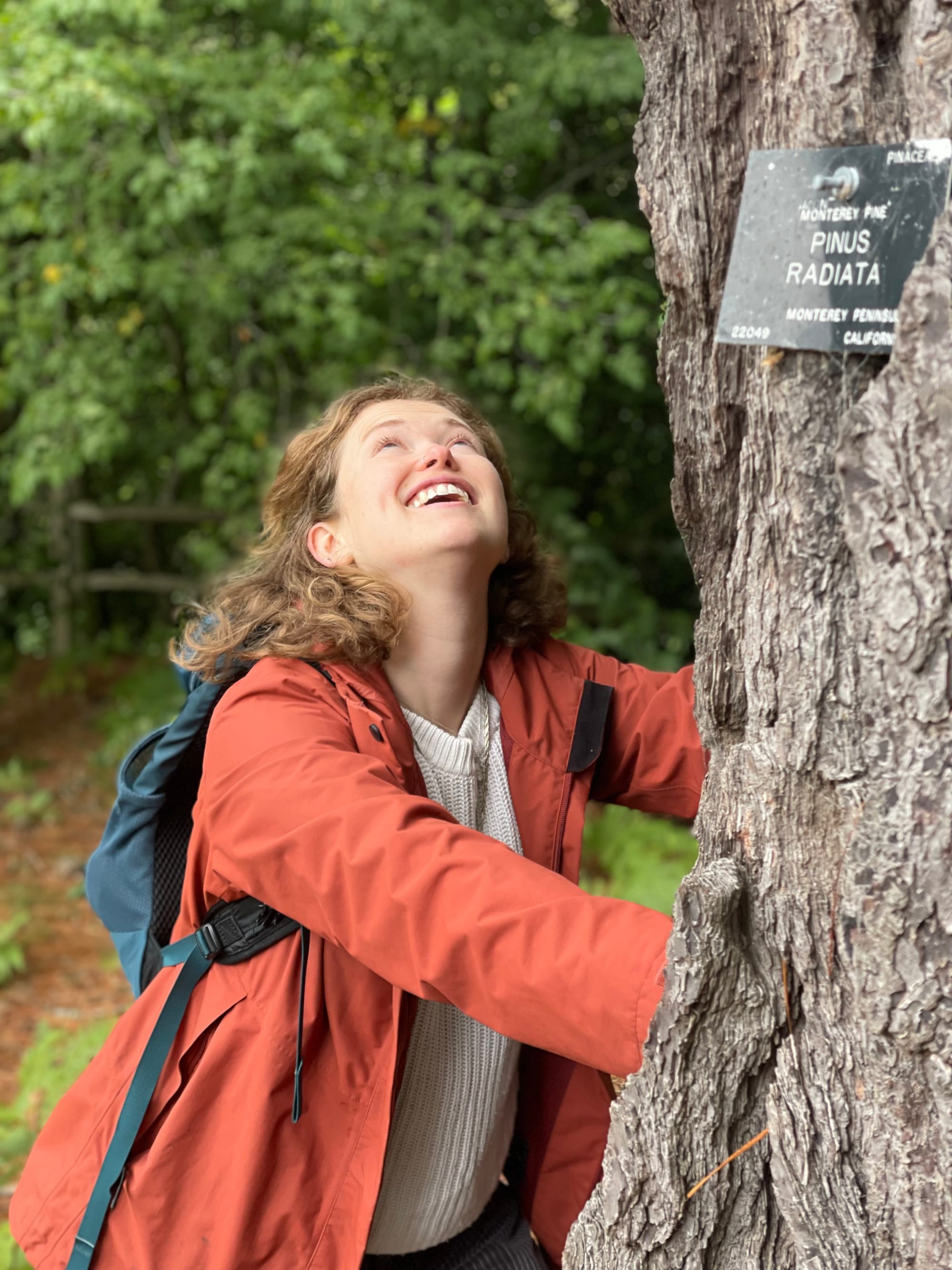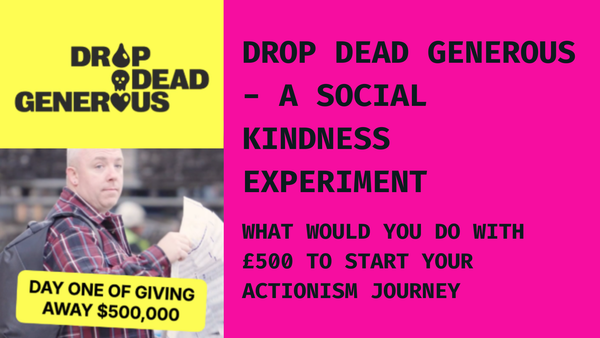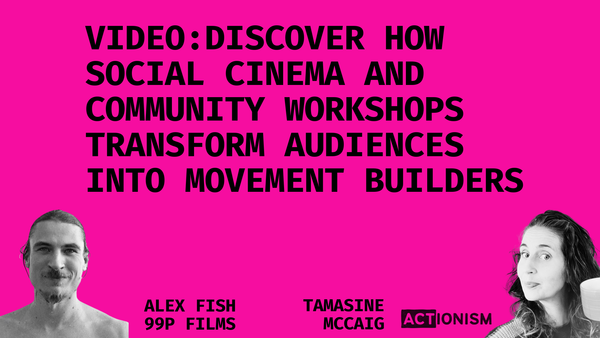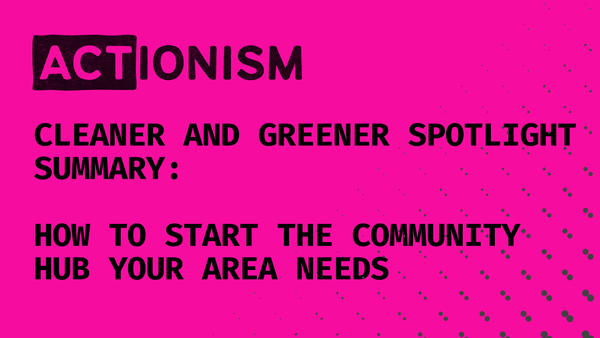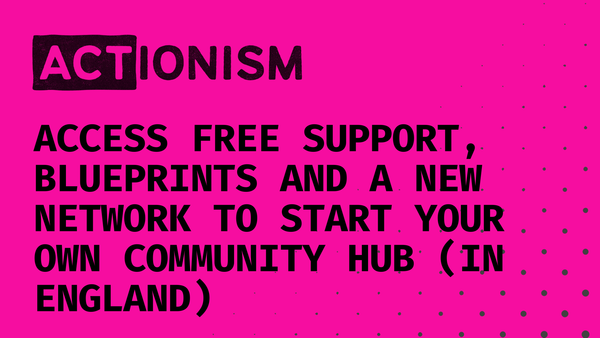Learning to Love Where We Live
So this is the start of my next creative journey. The time has come for me to take action and to live the reality of what I believe: that by learning to love where we live we can make genuine and lasting change.
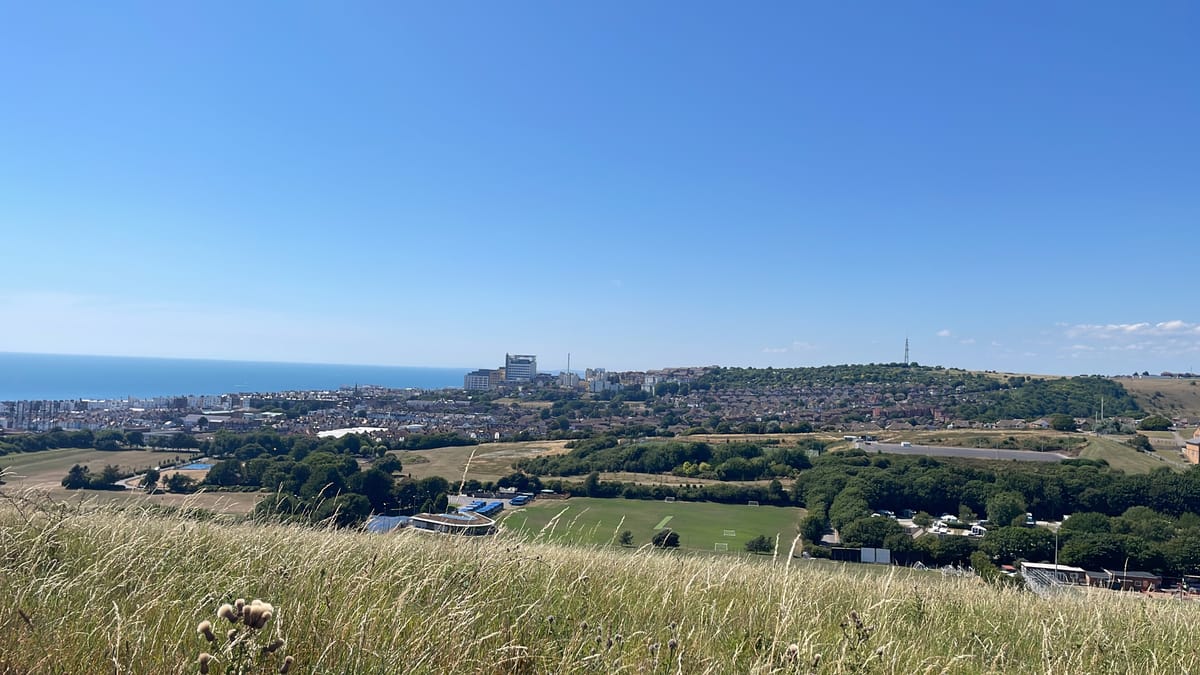
This one has been a long time coming but now that I’m writing, it’s hard to know where to begin.
See, I'm a millennial who got Instagram in the final year of university: that heady time where the structure of the obvious next step is taken away from you and you could literally do anything. Some people chose grad schemes with £50k starting salaries (no work experience required, apparently). Others decided to carry on studying, delaying those big life decisions just a teensy bit more.
And I chose the path I always seem to choose: make no commitments and see where the wind takes me.
I was talking to a friend a few months ago about the 'escape hatch' fantasy. That weird, wonderful urge, seemingly shared by a lot of young(ish) folks, that there's always the option of selling all your belongings, shaving your head, and moving to South America to experience true spiritual connection and discover the meaning of life.
For some millennials it looks a little less head shave-y and a little more 'Bali and beach cocktails'. For older generations it's Eat, Pray, Love and sexy Italian men (though, actually, I think that also ends up in Bali… I watched that film a long time ago and mainly remember intense romantic encounters and a lot of Julia Roberts eating pasta).
The point is: in our modern culture we have a bit of an obsession with travelling and moving around as a way to 'find ourselves'. This, we tell ourselves, is the path to adventure. The path to a BIG life, one full of experiences and stories and deeper truth. The travel influencers and #vanlife algorithms come for us hard, convincing us that only by being on the road can we ever experience true freedom.
Don't root, don't 'settle', and don't be boring.
Obviously I'm generalising, some people's algorithms are full of house design content and how to make as much money as possible. And some of us did head straight for South America after graduation.

But here I am, 18 months since I moved to Brighton, and I can feel those familiar sirens singing for me again.
Which is exactly why I need to commit to telling you what I've been thinking about for the past few months. Because 'Learning to Love Where We Live' started one little piece about appreciating being in Brighton but it has come to represent pretty much everything I've been thinking about on this weird and wonderful journey.
Origins
As a recap for anyone new here (or who's forgotten me because it's been so long since I posted): I'm Olivia and about two years ago I started a Substack called 'Unravelling Together' about challenging our collective understanding of how the world works.
And boy oh boy did I unravel. I unravelled real hard.
The last two years have been the most difficult but also the most vital years of my life. I choose that word vital deliberately. I've realised that I spent most of my twenties chasing a feeling of being alive through movement. Travelling the world, first dates and too much wine, chasing career accolades and titles (that rarely actually came). Basically, always looking towards the next thing.
I’m sure many of you can relate. It’s so easy to think that the next thing will be what finally gives us peace or makes us happy. Maybe the reason we're all so addicted to movement is because staying still long enough to actually love something - a place, a person, or yourself - is one of the hardest things we can do.
Don't get me wrong, I still want to see new places and meet new people (please don't @ me if you see some newly shorn pictures from a South American mountain). But I've realised that 'Learning to Love Where You Live' isn't just a little project about appreciating being in Brighton, it's about alleviating the need for an escape hatch at all. Because how sad is it that we spend so much of our lives trying to be anywhere other than where we actually are?
Learning to love where we live: The Place
Initially this was all about learning to love the place that you're in. My increasingly strong belief, is that if we could all care just a bit more about the places we are physically in, then we might actually stand a chance at tidying up some of the metaphorical and literal mess that we're in.
We're in ecological crisis partly because we've become so utterly disconnected from the land. Most of us couldn't tell you which birds migrate through our area, or what grows wild in the hedgerows, or where our water actually comes from. We live on top of places rather than within them. And when you don't really know a place, when you haven't sat with it through all four seasons and learned its moods and rhythms, it's very hard to care about its suffering or fight for it's future.
For me, this started as a very local question: what does it mean to actually know Brighton and Sussex? To recognise the plants in my garden, to understand the tides, to know who's doing what in the local community. There's something very humbling about realising you can't name most of the living things (including people!) that you share space with. And that you’d be pretty stuffed for dinner if the internet went down and the local Sainsburys closed.
There's something else here that's been growing for me over the past few weeks. I’ve been talking a lot to close friends about the fairly urgent need to reclaim 'Englishness' given the context of the UK right now. We're watching nationalism rise, watching people weaponise belonging and use 'our land' as a rallying cry for exclusion and hatred.
And yet. What if we could reclaim the idea of being rooted without being exclusionary? What if loving where you live meant caring for all the beings who live there, human and more-than-human? What if Englishness could be about ancient woodlands and chalk streams and the right to roam, rather than about walls and borders and keeping people out? What if we tried to tune back into the wisdom of the wild places? What if we actually grappled with our colonial past and met it head on, using the collective reckoning as an opportunity to move forward into something collectively reimagined?
I don't have the answers yet. But I know that learning to love this place - the southern coast of this rainy, complicated, but beautiful island - feels like an important part of the work. This cannot be a nostalgic, backwards-looking love, but a clear-eyed commitment to understanding where we are and what it needs.
But before we can love a place, we need to love where we literally live.
Learning to love where you live: Ourselves
Where do we actually live? In these fleshy, fallible, fabulous bodies. These temporary collections of atoms that have come together for a period of time to allow us to experience the notion of being 'alive'.
Now this is a really difficult share for me and one around which I carry a lot of shame. I've spent most of my adult life feeling deeply uncomfortable in my own body. I’ve had chronic pain since my early twenties and I have lived in a state of conflict and frustration with my body ever since. This has led to endless procrastination of actually doing the work to get strong and feel good in myself. I say, 'Oh I’ll start properly next week... next month... okay maybe next year. Just once I’ve figured out the right approach'. I've treated my body like a problem to be solved rather than a place to inhabit.
And I'm definitely not alone in this. We've inherited so much cultural baggage about bodies: productivity culture that treats rest as laziness, fitness as punishment for the crime of eating too much, the idea that our bodies are projects to optimise rather than homes to live in. We're sold the story that happiness lives on the other side of transformation: just lose the weight, just build the muscle, just fix the thing, and then you can finally, actually live.
But what if loving where you live starts with accepting this body, this mind, these limitations, right now?
I want to be clear: this isn't about toxic positivity or just deciding to "love yourself!" as if self-acceptance is a simple choice you can make one morning. It's not about pretending chronic pain doesn't hurt or that ableism doesn't exist or that all bodies are treated equally by society (they absolutely are not).
It's about something smaller and more radical: actually inhabiting your life rather than constantly planning to start living once you've fixed yourself. It's about asking your body and mind what it needs rather than what you can force it to do. It's about recognising that this body, imperfect and complicated as it is, is the only place you'll ever actually live.
And when we can stay with ourselves through the boring bits and the painful bits and the deeply unsexy bits, maybe then we can finally stay with others.
Learning to love where you live: Each Other
There’s a Sufi maxim I recently discovered:
Fear knocked at the door.
Love answered and there
was no-one there.
I’ve thought about fear a lot over the last two years. It's been an almost constant companion for me. The fear that seems to always be knocking: fear of change, fear of others, fear of the future. How that fear is entrenched in us by the world we inhabit, the media and vested interests that want to keep us afraid because fear keeps us isolated and stuck.
So we build walls instead of bridges, we ghost or run away instead of having difficult conversations and we stay surface-level because going deep feels too risky. We see each other as potential threats rather than potential friends. In constantly seeking to protect ourselves from hurt we end up hurting ourselves and each other all the more.
So we see fear masquerading as anger, taking centre stage and allowing fascism to rise again.
What if we could learn to choose love rather than fear? To love each other through the messiness of being human? We're all messy. Every single one of us is complicated and contradictory and sometimes deeply annoying. We're grumpy before coffee and lovely after a hot shower. We have strong opinions about loading dishwashers. We say things we regret and fail to show up the way we meant to and forget important dates and hurt people we love.
And we need to accept that messiness - in ourselves and in each other - if we're going to build anything resilient.
Because the work of resisting authoritarianism, of fighting for a liveable future, of creating the communities we'll need as systems continue to collapse - none of that can happen from a place of isolation and fear. It requires us to actually be connected to each other, willing to show up imperfectly, ready to love each other through the mess.
When fear knocks, we need to answer with love and we need to remember, as Alan Watts once said "Love is the organising and unifying principle which makes the world a universe and the disintegrated mass a community."
And that brings me to something important: this can't just be about "you."
Learning to love where we live: we’re in it together
When I started thinking about this project, it was very much about "you" (or rather, ME, mwahaha). Learning to love where YOU live. YOUR body, YOUR place, YOUR life.
But I had an epiphany the other day when I reconnected with my friends at ACTionism and after finishing 'The Wisdom of Insecurity' by Alan Watts (I really really liked it, in case you couldn't tell from the two references in the space of 10 seconds).
There is no "I" without "we." We only exist in relation to the world around us - to other people, to place, to the living systems we're part of. The idea that we're separate individuals who can transform ourselves in isolation is another one of those very harmful stories we need to unravel.
You can learn to love your body, but bodies don't exist outside of culture and systems. You can commit to a place, but places are shaped by communities and histories and power structures. The personal journey matters enormously but it only makes sense in the context of collective transformation.
This is why I'm shifting from "you" to "we." Not to erase individual experience, but to acknowledge what's actually true: we're in this together. The project of learning to love where we live is inherently collective.
And this matters practically too. The resilience we need to navigate the coming years - the climate chaos, the political turbulence, the systems in collapse - that doesn't come from individual self-optimisation. It comes from interconnected communities who've learned to care for each other and the places they inhabit.
Yes, I'll be doing things to learn to love where I live. But I'm inviting you along not as spectators to my personal journey, but as co-creators of something bigger. This works when we do it together.
So this is the start of my next creative journey. The Substack started as Unravelling Together and I have found wonderful people with whom I think I will continue to unravel and re-ravel for all my days. The unravelling is all part of the journey. But the time has come for me to take action and to live the reality of what I believe: that by learning to love where we live we can make genuine and lasting change.
Each week (give or take) I will be doing something that helps me to learn to love where I live. I’ll share the experience and I’ll invite you to have your own experience, if it resonates with you. I don’t plan for these to be massive or frightening steps. I’m not going to tell you to quit your job and give up cheese and go on a 10-day silent retreat to find yourself. In fact, I’m going to encourage you to stay exactly where you are.
I’m going to do things like invite my neighbours round for tea and cake, and go and watch the starling murmuration on Brighton beach. I’m going to visit a local community garden and I’m going to go for a run along the seafront rather than scrolling Reddit. I’m going to sit and watch the insects in my garden.
Because if I’ve learned anything these last two years, it’s that the smallest actions can take you to places you’d never expect. So, come with me, and let’s learn to love where we live.
